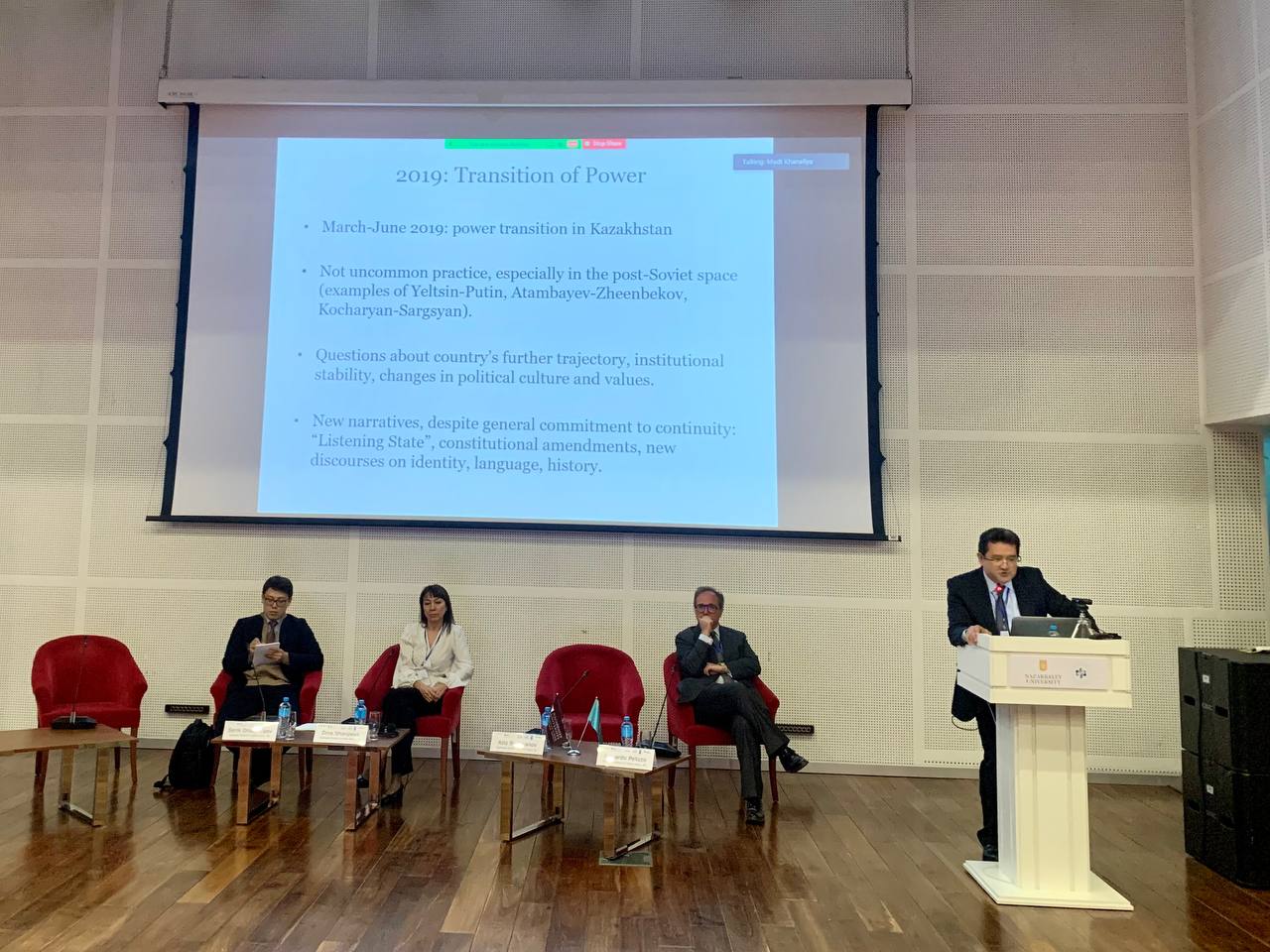NUR-SULTAN – The Nazarbayev University Graduate School of Public Policy (NU GSPP) hosted a panel discussion on Political Instability in Central Asia on June 7 unpacking how the society and government discourse changed in the context of January events and exploring what the policy implications of those changes are.

Aziz Burkhanov leading the panel session. Photo credit: astanatimes.com
Aziz Burkhanov, Associate Professor of NU GSPP opened the discussion with the topic of identity and how the identity narrative changed in terms of priorities and focus, especially in relation to different ethnic groups and history.
To deliver his message, Burkhanov focused on the 1920s and 1930s famine on the territory of Kazakhstan that was the result of poor governance from the Soviet Union, and how its history was discussed among society and the Kazakh government.
“What we are seeing now is there is more societal demand for this issue to be explored. We have seen that several documentaries have been produced about the famine. This, in general, shows that the societal narrative has changed. The narrative is looking for a closer look and investigation of asharshylyk (famine),” said Burkhanov.
Changes in the domestic narratives regarding identity and history are a sign of broader changes not only in the government but also in society, said Burkhanov. “Society wants more answers about the historical events that have not been discussed properly. That coincides with the system opening up for broader societal discussions,” he concluded.
Dina Sharipova, Assistant Professor at NU GSPP, joined the panel with the topic of President Kassym-Jomart Tokayev’s rhetoric during his speeches from early January till his address to the nation on March 16.
Her aim was to examine the relationship between presidential rhetoric and people’s views.
For example, Sharipova said that “In his address to the nation the inclusive pronoun “we” was mentioned 54 times, while the exclusive pronoun “I” was used 24 times, which is half less,” which was done to demonstrate the unity of people with the government.
She also pointed to the strategic use of proverbs to show that people have a common history.
Serik Orazgaliyev who works as Assistant Professor at NU GSPP presented his paper on the effect of social media on the fragmentation of society. Orazgaliyev challenged the assumption that media facilitates free speech in countries with government control of media.
According to him, there is one side of media that people ignore, which is that digital media can have a polarizing effect on society, creating social fragmentation and increasing the risk of conflict.
“The nature of polarization is related to people’s tendency to get into like-minded groups and digital media allows us to do this,” he added.
He also drew attention to the challenges that fake news creates, and that it can be used for dangerous propaganda and cyber-attacks.
“Policy challenge is to regulate digital media without undermining free speech, and respect diversity mitigating extreme polarization that can lead to violence and radicalization,” concluded Orazgaliyev.
